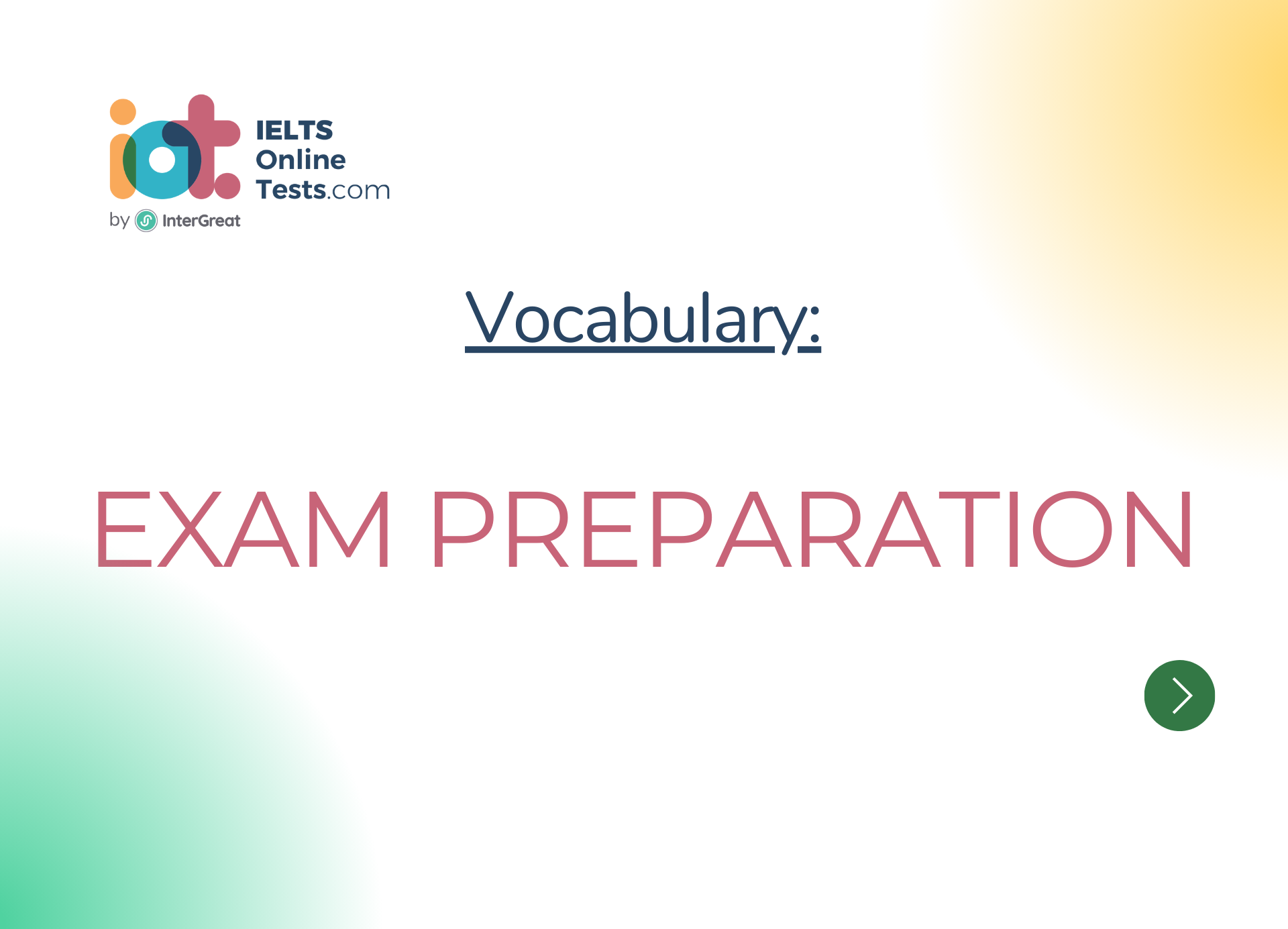
Exam preparation
Here's a lesson on vocabulary related to "Exam Preparation" for the IELTS band score 3.0-4.5:
I. Study Methods:
Note-taking: The practice of recording important information during lectures or while reading.
Flashcards: Small cards with information or questions on one side and answers on the other, used for review and memorization.
Mind Mapping: Creating a visual representation of ideas and concepts to aid in understanding and recall.
Group Study: Collaborative studying with classmates or peers to share knowledge and learn from each other.
Self-Study: Studying independently using resources such as textbooks, online materials, or practice tests.
II. Time Management:
Study Schedule: A plan that outlines dedicated study time for each subject or topic.
Prioritization: Identifying the most important or challenging topics to allocate more time and effort.
Breaks: Scheduled intervals of rest and relaxation during study sessions to maintain focus and prevent burnout.
Procrastination: Avoiding or delaying study tasks, often leading to last-minute cramming and increased stress.
Deadlines: Specific dates or times by which assignments or exam preparations must be completed.
III. Exam Strategies:
Practice Tests: Mock exams that simulate the format and content of the actual exam.
Question Analysis: Carefully reading and understanding exam questions to ensure accurate and relevant responses.
Time Management: Allocating time wisely to complete all exam sections or questions within the given time limit.
Guessing: Making an educated guess when unsure of the correct answer, especially in multiple-choice questions.
Exam Techniques: Approaches and methods specific to the exam format, such as elimination, skimming, or underlining key points.
IV. Revision Techniques:
Review: Going over previously learned materials to reinforce knowledge and identify areas for improvement.
Memorization: Committing information to memory through repetition, mnemonic devices, or visualization techniques.
Concept Mapping: Creating visual diagrams or flowcharts to connect and organize related information.
Summarizing: Condensing large amounts of information into concise and coherent summaries.
Practice Questions: Answering exam-style questions to familiarize oneself with the expected format and content.
V. Study Resources:
Textbooks: Educational books that cover specific subjects or topics.
Online Materials: Digital resources such as websites, videos, or e-books for studying.
Lecture Notes: Written or typed records of important information from classroom lectures or presentations.
Study Guides: Materials that provide an overview and key points for a specific subject or exam.
Past Papers: Previously administered exam papers used for practice and familiarization with the exam format.
VI. Test-Taking Strategies:
Read the Instructions: Carefully read and understand the instructions for each section or question.
Time Allocation: Divide the available time proportionately among the different sections or questions.
Skim and Scan: Quickly go through the text to get a general understanding or locate specific information.
Underline or Highlight: Mark important keywords or phrases in the questions or passages to aid in answering.
Check Answers: Review and double-check answers before submitting the exam.
Remember to practice using these vocabulary words in sentences and conversations to improve your understanding and fluency in English.




